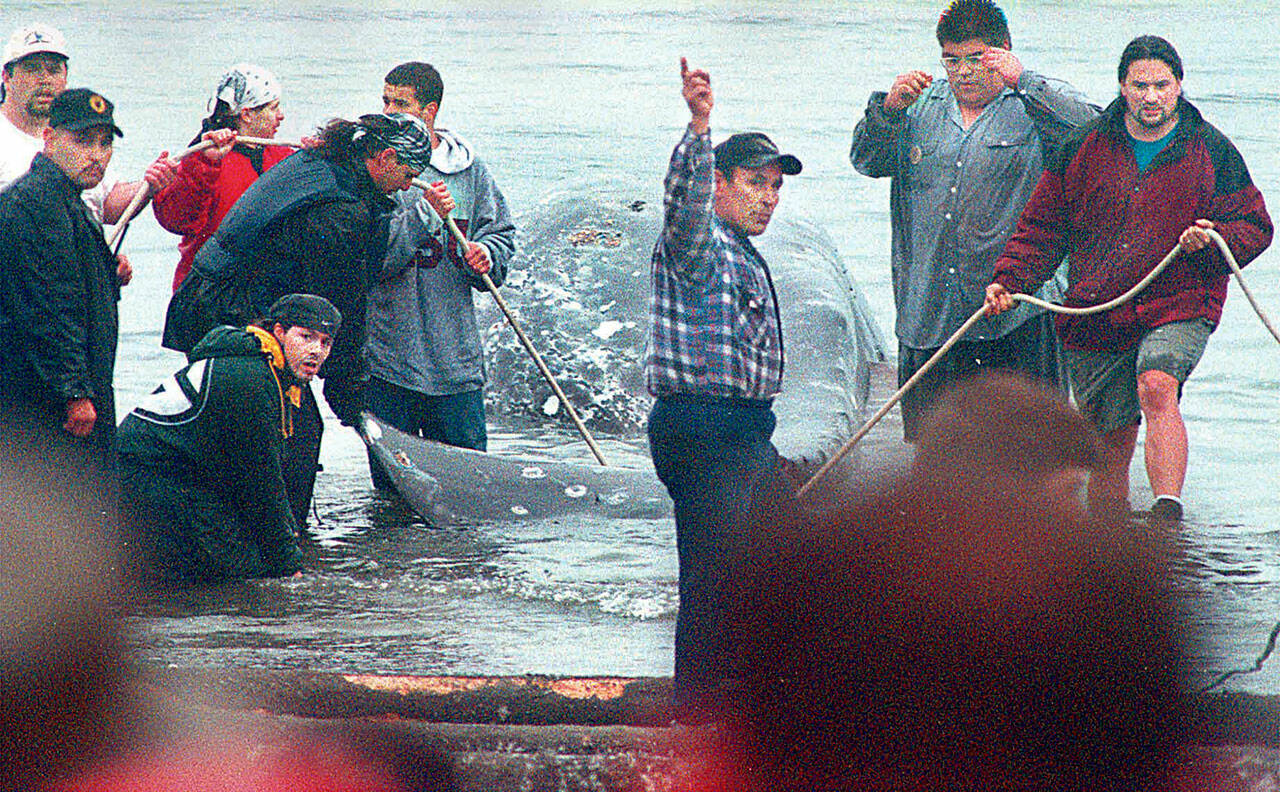PORT ANGELES — The Makah Tribe has been approved by federal regulators to harvest up to 25 gray whales over the next 10 years in accordance with its longstanding treaty rights.
Thursday’s decision from the National Oceanographic and Atmospheric Administration Fisheries grants the Makah Tribe its long-sought waiver from prohibitions in the Marine Mammal Protection Act.
The waiver allows the Makah limited subsistence and ceremonial hunting of Eastern North Pacific gray whales in accordance with the Treaty of Neah Bay of 1855 and within quotas established by the International Whaling Commission.
According to the IWC, the Makah is the only tribe whose treaty expressly secures its right to harvest whales, seals and fish in perpetuity.
The Makah’s last legal hunt took place in 1999.
Since February’s 2005, the tribe has been seeking authorization from NOAA Fisheries to hunt whales for ceremonial and subsistence purposes, and to make and sell handcrafted items from those it harvested.
After almost 20 years of scientific reviews, legal challenges and public hearings, Makah Tribal Chairman T.J. Greene said it was a relief to finally have an answer.
“There’s a lot of work to do to get out on the water and actually do a hunt, but it’s gives us a defined process, which we haven’t had since the ’99 hunt,” Greene said.
Under the decision, the tribe must apply for and receive a permit to hunt a whale.
The decision also includes time and area restrictions, restrictions on the methods hunters can use, reporting and monitoring requirements, low population thresholds and restrictions on the use of gray whale parts.
Greene said that although the tribe doesn’t agree with all of the rules in the decision, such as excluding some areas of the Strait of Juan de Fuca from hunting, it will nonetheless follow them.
Greene said that the first hunt realistically will probably take place next spring. In addition to the permitting process, the tribe needs time to prepare for a hunt, particularly the whalers who will need to mentally and physically prepare for a rigorous and often dangerous activity.
Among the groups that have fought against the waiver is the Peninsula Citizens for the Protection of Whales.
Margaret Owens, who was one of its founders in 1998, said members wanted to read through the rules and regulations for the hunt before it made any decisions on what to do next. What has not changed, she said, was its opposition to whaling.
“There’s many reasons,” Owens said. “There’s reasons of science, there’s reasons of law, and there’s reasons of emotion.”
Greene said the Makah have fought long and hard for its treaty right to hunt whales because it is a ritual that embodies who they are as a people.
“It brings us closer together,” Greene said. “It brings us in communion with one another. It brings us in communion with our environment so there is a spiritual and cultural connection.
“It makes us better as a people, it makes us better as individuals, and it provides that social fabric that can can lay the framework for a thriving community.”
________
Reporter Paula Hunt can be reached by email at paula.hunt@peninsuladailynews.com.

